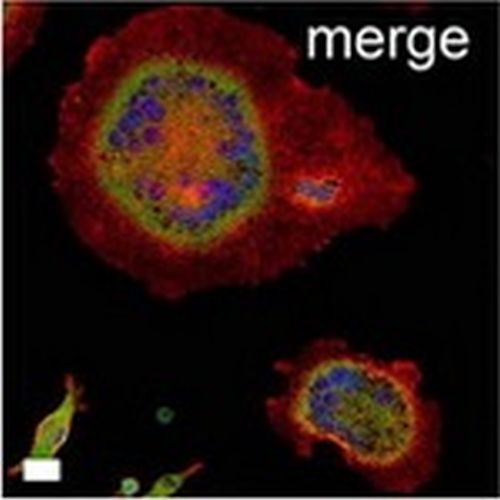Src-dependent repression of ARF6 is required to maintain podosome-rich sealing zones in bone-digesting osteoclasts.
Bone digestion occurs when osteoclasts adhere onto bone surfaces and polarize to form acidic, hydrolase-rich resorption lacunae. For this process, they condense their actin-rich podosomes in tight belts to establish sealing zones, which segregate their basal membranes from those facing resorption lacunae. This polarization process remains poorly understood. Here, we combined quantitative proteomics and gene silencing to identify new substrates of the Src tyrosine kinase, a key regulator of osteoclast function. We now report that a depletion of the ARF GTPase-activating protein GIT2, which localizes to sealing zones upon Src phosphorylation, or a lack of GTP hydrolysis on ARF6 impairs sealing zone formation and polarized membrane traffic. Surprisingly, the Rho guanine nucleotide exchange factors alpha and beta PIX, which usually coordinate ARF and Rho signaling, were found to be dispensable. We conclude that the Src-dependent localization of GIT2 is essential for down-regulating ARF6 activity at sealing zones, and thus for maintaining osteoclast polarity.

- Proc. Natl. Acad. Sci. U.S.A. 2009 Feb 3;106(5):1451-6
- 2009
- Cell Biology
- 19164586
- PubMed
Enabled by:
